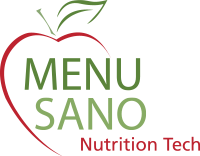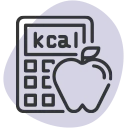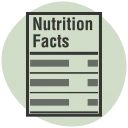Nutrition plays a vital role in healthy optimal living. We often hear about diseases such as cancers, Alzheimer’s, osteoporosis and many others affecting our lives and our families. We also hear about a lot of medical discoveries and advances associated with these diseases. The medical industry has come a long way in making improvements and cures. However, we have to consider that we need to take a step back and realize that as humans, we have some control over our health and that is through nutrition. With a proper diet, we will be able to provide our bodies with the minerals, vitamins and nutrients it needs. Our bodies will then be able to function properly, and we will better equipped against fighting disease. Additionally, will be able to function optimally and live better lives.
As a consumer, we want you to be informed of your choices. Below is a checklist of general guidelines when aiming for a healthy diet.
Vegetables
A meal should be rich in vegetables. Vegetables will protect your health as they are full of vitamins and minerals. Vegetables are generally rich in calcium, magnesium, potassium, iron, and vitamins A, C, B and K. They also contain antioxidants which protect the body from diseases and cancers. Veggies also aid in digestion as they contain fiber. When choosing vegetables to eat, you should often go for dark leafy greens such as spinach, kale, colourful bell peppers, carrots and tomatoes.
Protein
Every meal should have some sort of protein. Protein is very important in the development of musculature and the skeleton. It also plays a role in making enzymes, hormones and other chemicals in the body. Protein can also help balance out the sugar spike that a carbohydrate might create and as a result helping in balancing your weight. However, protein should not be over consumed as it cannot be stored like fat or carbohydrates.
Complex Carbohydrates
The type of a carbohydrate consumed is fairly important so that it can provide optimal benefit to your body. Eating complex carbohydrates such as oatmeal, sweet potatoes, quinoa, buckwheat and lentils can provide a multitude of benefits. Although, carbohydrates have been criticized for weight gain, as long as consumed in moderation, and the right type of a carb, they can be extremely beneficial to the body. In particular, carbs are beneficial for providing energy needed for the muscles, brain and nervous system. Carbs also provide fiber, which aids in digestion and also provides a feeling of fullness. Some carbs are also beneficial in providing vitamins, minerals and other nutrients.
Fats
Essential fatty acids such as omega 3, 6 and 9 play a very important role in the human body. Although not needed in every meal, they should be consumed daily. Omega fats have shown to be useful in preventing some cancers, lowering blood pressure, helping with skin disorders and also helping in brain development. Omega fats can be found in salmon, avocados and nuts. Children especially should be fed omega fats as they are still in growth stages.
Water
About 75 percent of your body is composed of water. You lose water daily through regular activity and need to continuously replenish. Water is necessary for energy, healthy skin, proper digestion, cleansing and overall body balance. Dehydration is also the culprit of a lot of headaches.



















